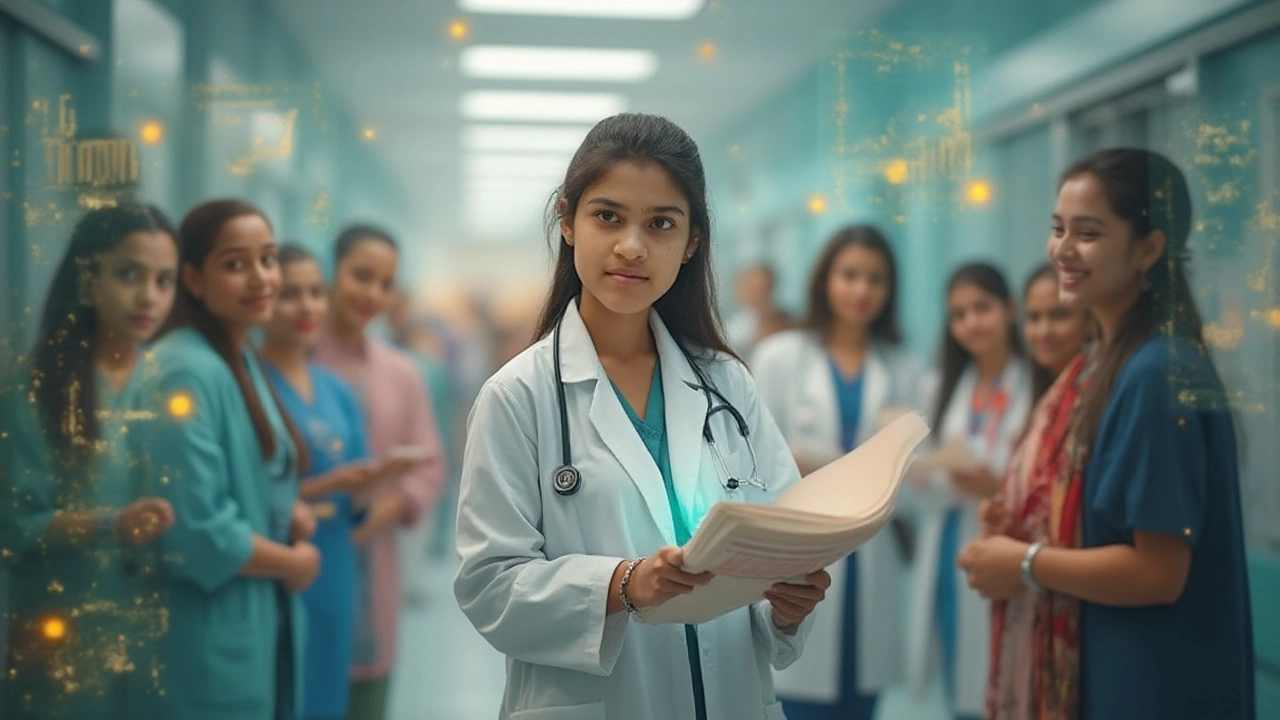
MBBS Doctor Salary in India: Latest Insights and Career Earnings
Explore how much an MBBS doctor earns in India, salary factors, state differences, and what to expect through your medical journey. Real data, real tips.
If you’ve cleared NEET, the real work begins. You now have a menu of options – MBBS, BDS, BAMS, nursing, physiotherapy, and more. Each route leads to a different kind of doctor, salary, and lifestyle. The key is to match your interests with the reality of each field.
First, ask yourself what you enjoy in a medical setting. Do you see yourself in an operating theatre, or helping patients recover in a clinic? Do you like working with children, or are you more interested in research? Your answers will narrow down the fields that feel right.
MBBS remains the most popular choice because it opens doors to all specializations. If you want to become a surgeon, cardiologist, or psychiatrist, this is the way to go. However, MBBS is a long journey – five years of study plus a year of internship.
BDS focuses on dentistry. It’s a shorter course (four years plus internship) and offers a stable practice with good earnings. If you like working with smiles and oral health, BDS could be a sweet spot.
BAMS (Ayurveda) and BHMS (Homeopathy) cater to alternative medicine enthusiasts. These programs are gaining respect, especially in rural areas where traditional practices are common. They also have lower tuition fees in many cases.
Nursing and allied health courses such as physiotherapy, occupational therapy, and radiology are excellent if you prefer hands‑on patient care without the long academic route of an MBBS. These programs often last three to four years and have high demand in hospitals.
Beyond NEET, you’ll face other exams that decide your specialty. For postgraduate (PG) seats, the NEET‑PG is the gatekeeper. It tests your knowledge from MBBS and determines who gets into surgery, medicine, or pediatrics.
If you aim for super‑specialty (DM/MCh) courses, the NEET‑SS exam comes next. The questions get tougher and focus on the niche you want to master.
For dental specialization, the AIPGDEE exam is the route to MDS seats. It assesses your dental knowledge and practical skills.
Each of these exams follows a similar pattern: multiple‑choice questions, time pressure, and a need for strategic revision. Use past papers, take timed mock tests, and focus on high‑yield topics.
Practical tips: start a revision schedule early, join a reliable test‑prep group, and keep a notebook of tricky concepts. Even short daily sessions can boost recall when the exam day arrives.
Finally, don’t forget the importance of internships and hands‑on experience. Whether you’re in a government hospital or a private clinic, real‑world exposure sharpens your skills and makes you a stronger candidate for future exams.
In short, map your interests, choose a program that aligns with your goals, and gear up for the exams that follow. With the right plan, your medical career in India can be both rewarding and sustainable.

Explore how much an MBBS doctor earns in India, salary factors, state differences, and what to expect through your medical journey. Real data, real tips.